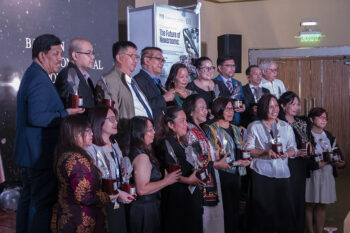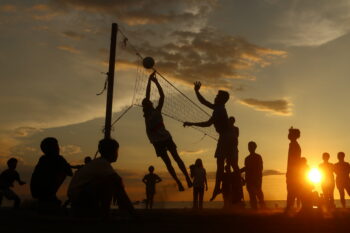BERN, Switzerland (MindaNews / 04 November) — It’s not playful wordplay to say that news of strong earthquakes is always received with a jolt. Or to say that the accounts of the survivors are always moving.
Because earthquakes have the power to kill, and maim and injure, and leave lasting scars. Quakes happen without warning. They have the power to upend our lives in an instant and change it forever. Perhaps that is why earthquakes are so much dreaded, because they have the power of finality, and surviving is often a matter of seconds or divine providence or just simply luck .
I became aware of the North Cotabato quake through numerous Facebook posts from my friends in Mindanao, from North Cot to to GenSan to Davao reaching up to my homeplace of Surigao. That single word “Linog!” carried with it the terror of being shaken helplessly in the earth’s brutal movements, together with the existential question of whether they would survive or not in the next few seconds.
The Bisaya have a word for this unstoppable elemental force, “gi-uy-og” which means to be shaken or jolted or rattled helplessly.
I have experienced earthquakes myself in my childhood in Surigao and I can still remember the fright that came with it. What I cannot imagine though is the terror of living through four strong earthquakes in the same month and the aftershocks that come with it. That is what our people in Cotabato and nearby are undergoing now. It must be like living under the Damoclean sword of our fables, not knowing when the next aftershock hits. The dread simply builds up.
What little reassurance comes from the knowledge that the government has held numerous earthquake drills and the public now has a much better grip of what to do when the next tremor is felt. Duck-cover-hold becomes a mantra, and the concept of the so-called “triangle of life” somehow gives reassurance that we can survive even a big one.
I cannot gloat over the fact that we do not have such destructive earthquakes in this part. Switzerland in fact does experience earthquakes. The Swiss Seismological Service (SED) at ETH Zurich records an average of between three and four earthquakes a day, or between 1,000 and 1,500 earthquakes a year, in Switzerland and its immediate neighboring countries.
But the big difference is that the quakes here are mild (only magnitude 2.5 or a little above) and do not reach the same magnitude as those in the so-called “Ring of Fire” countries prone to catastrophic quakes.
The SED says the strongest ever historically documented earthquake in Switzerland, with a magnitude of about 6.6, occurred near Basel in 1356. And that there is a 1% probability of a catastrophic earthquake with a magnitude of 6 occurring within the next years.
False sense of peace that gives me. I would not want to be anywhere near the Swiss Alps if ever a strong quake hits these parts, wondering how the granite stone in the steep mountain passes would react to that primordial force.
My family and friends who experienced the magnitude 6.7 February 2017 quake in Surigao told me of an eerie frightening sound that came during the quake, of a dull roar that seemed to be coming from the bowels of the earth itself, as if the earth had grown teeth that it was now gnashing with unbelievable force and violence.
And so that is the multilevel experience of the earthquake – the physical rattling and the sense of helplessness, the cries of panic, the earth groaning and growling, and maybe also the smell of sulphur that can be released from below? The experience simply beats the most frightening 4D cinematic experience.
What I cannot understand though is what motivates pranksters to take advantage of the situation. Fake doomsday messages are spread by text and fake news abound in the social media. Even the authorities are to blame for the scare—they issue dire warnings about the next ones, knowing that the aftershocks are sure to follow. It is much better, as a FB friend says, for authorities to just focus on directing people to the safe areas, keeping them there and providing them basic services like food, water, temporary shelter and lighting.
I read with dismay the growing damage and casualty count. From far away I feel helpless too. What I can immediately offer are prayers for safety hoping that the worst has passed. Even with limited funds and capability, surely the government can prepare the country for the next ones. (Mindanawon Abroad is MindaNews’ effort to link up with Mindanawons overseas who would like to share their thoughts about their home country and their experiences in their adopted countries. Brady Eviota wrote and edited for the now defunct Media Mindanao News Service in Davao and also for SunStar Cagayan de Oro. He is from Surigao City and now lives in Bern, the Swiss capital located near the Bernese Alps)







